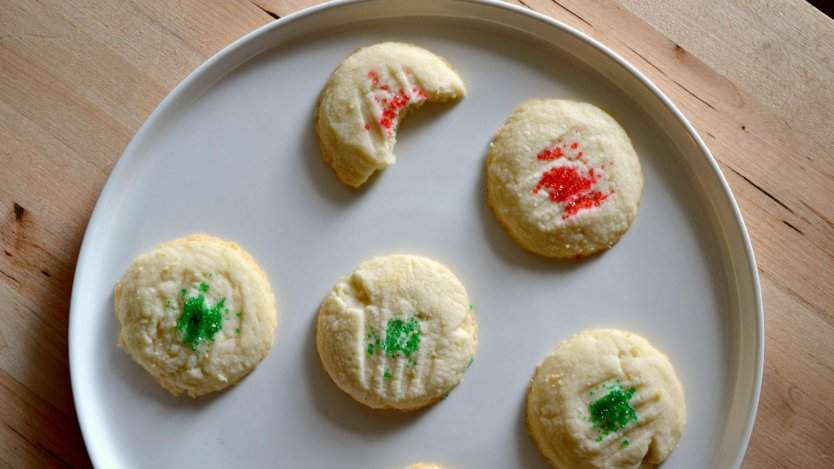Have you ever smelled a batch of freshly baked cookies and been immediately transported back to your childhood, when you watched your mother pull that big tray of buttery shortbread goodness out of the oven with pillowy oven mitts? Food and memory go together like warm cookies and milk. We've all had vivid memories of food and eating.
Eating is experienced through virtually all of the senses — not only do you visually see colours and shapes of food, you can feel the texture and temperature, taste the flavours, hear the sizzle, and more importantly, you smell the aromas. It has been found that both the gustatory (taste) and olfactory (smell) systems make connections with an area in the brain called the amygdala. In fact, there is an entire brain map for taste. What does this mean exactly? The amygdala is one of the primary brain centers for emotion and memory. So, not only do you remember what food you have tasted and smelled, you also recall whether or not you enjoyed it quite clearly. Whereas homemade sweets may conjure up feelings of happiness and comfort, that tripe that you could not stomach (no pun intended) the first time you ate it can make you cringe almost as much in subsequent experiences.
At this point you may be thinking: “Why the hell do we devote so much brain power to food?” We need to eat, but it’s not rocket science, after all. Many argue that these connections have a significant evolutionary function. Back when we were cavemen grilling meat over an open fire, it was necessary for survival to know when food had the potential to kill us. Bitter foods were often poisonous, so it was critical to have an adverse taste reaction, and a memorable one at that, in order to avoid potential danger.
Odour can actually aid in memory, regardless of whether or not food is involved, as proven by several experiments performed in the early 90’s at Yale University. They gave participants a list of words to try and remember. For some participants, an ambient odour was present during this period. Those who had been exposed to the odour while they were learning the words actually recalled more of them later when the same odour was present, as opposed to those who were not exposed to the odour.
What this really proves is the importance of context in the retrieval of memories. Other studies have been designed with varied factors such as the location in which information is learned. For example, scuba divers who learned words under-water showed better recall under-water compared to on dry land. Thus, the more the current environment is similar to the original, the more you remember from that original situation. So, that recipe your grandma taught you in her kitchen way back when? Good luck trying to remember it now in your own place!
Just how accurate are our memories and what impact do they have on our expectations of food? Researchers in the UK have found that even if you initially find something to be unpleasant, the strength of such opinions tend to weaken over time. After only a week of eating something that they originally found to be disappointing, participants in the study showed no negative expectations when exposed to the same food again. Perhaps this explains why we are willing to return to a restaurant after a horrible experience or why we give certain foods a second chance. Our memories of the initial experience actually become distorted over time.
Not only can our memories be distorted, they can be outright manipulated. An experiment by Bernstein et al. (2005) did just that. They told some of the participants that as children, they had gotten sick eating hard-boiled eggs or pickles. These people actually showed avoidance of the corresponding foods, compared to those who had received no suggestion regarding the aversive childhood experience. Yes, you can actually make people believe in an event that never even happened.
This brings everything into question, doesn't it. Did your mom actually bake you fresh bread when you're a child? Maybe she just told you so, and over the years, you learned to believe her, forgetting what actually happened. It could have been a store-bought loaf all along for all you know. Memories and food are undoubtedly linked, but the real question is, can you trust your memories?
References:
Berstein, D., Laney, C., Morris, E., & Lofthus, E. (2005). False memories about food can lead to food avoidance. Social Cognition, 23(1), 11-34. doi: 10.1521/soco.23.1.11.59195
Godden, D. & Baddeley, A. (1975). Context-dependent memory in two natural environments: on land and underwater. British Journal of Psychology, 66(3), 325- 331.
Robinson, E., Blissett, J. & Higgs, S. (2011). Memory and expected enjoyment of food. Appetite, 57, 565. doi:10.1016/j.appet.2011.05.093.
Schab, F. (1990). Odors and the remembrance of things past. Journal of Experimental Psychology, 16(4), 648.













